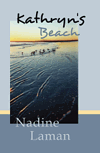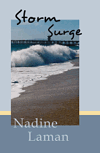Because it is so easy to self-publish, both ebooks and paper books, people leap before they look. The only problem with that is if the work isn't professional level, it won't gain traction.
I casually collect first editions. It is all the better if they are signed. While getting a personalized signature from an author seems the way to go, unless the author and I know each other, I'd just as soon that they don't personalize it to me. But that is my preference. I'm not a serious collector, so I'm free to do it my way.
Nonetheless, as a publisher, I'm less enthused about publishing a second edition than a first edition. Of course, it depends on the circumstance of the first edition, but it does weigh heavily in our decision to move forward on a project.
What is a first edition? It is the first publication of a book. These days, that includes ebooks, though I find ebooks a bit difficult to add to my library of first editions because they fall over on the shelf (kidding), so they don't interest me (true).
Obviously, a first edition is not the first version of a book. They start as a manuscript and hopefully by the time it is submitted in a query, it is not the first draft.
After the ms is under contract, depending on the publisher, a galley copy will be printed; printed, not published. This is an extremely small print run; extremely small. This copy is sent to book reviewers and sometimes to book purchasers for major book retailers. It is a rough copy of the book with the purpose of introducing the work to reviewers who will later help "put the word out" about the book that is timed with the actual publication.
The reason that Cactus Rain rarely prints galley copies is that very few small time reviewers, bloggers, or even book reviewers for hire, understand that this is not the finished product. They may comment on the grammar or some other non-item for a galley copy, whereas professional book reviewers understand that the purpose is to get the basics of the story into their hands. It is like tasting the cookie dough. It isn't a real cookie yet, but a preview of what the cookie will taste like when it is baked.
(If you're interested in collecting galley copies of books, some can be had at used book stores in NY City.)
Fast forward through a lot of dusting and polishing of the manuscript (ms) and designing the cover art, and a proof copy is printed. After revisions or corrections, ta-da! the real book goes into print and that is ... the first edition.
Querying a work that has already been published is a bit like going to the dealership to buy a new car and being shown the used car section. You might find a good car, but it isn't a new car.
Want to know more about first editions? Look here: http://www.biblio.com/book-collecting/basics/what-is-a-first-edition/

 When Paul Fenton stops for breakfast in a small town, he gets more than he bargained for in the process.
When Paul Fenton stops for breakfast in a small town, he gets more than he bargained for in the process.
 When two-hundred-year-old human remains are discovered on one of Neptune's moons, Earth's history falls into question.
When two-hundred-year-old human remains are discovered on one of Neptune's moons, Earth's history falls into question.
 Emily's husband persuades her to try thalidomide to ease her symptoms as she is unaware of the devastating effects.
Emily's husband persuades her to try thalidomide to ease her symptoms as she is unaware of the devastating effects.
 Who is the women's shelter bomber? Melissa Ryan suspects that her husband knows.
Who is the women's shelter bomber? Melissa Ryan suspects that her husband knows.
 Further developments with the Wilder family.
Further developments with the Wilder family.
 A hidden past shakes the O'Donovan family to its core
A hidden past shakes the O'Donovan family to its core
 A swirl of emotion and choice, set in Cape Town, South Africa
A swirl of emotion and choice, set in Cape Town, South Africa
 Love is a constant, but it comes at a price.
Love is a constant, but it comes at a price.
 When the road ahead is unclear, sometimes you have to rely on trust.
When the road ahead is unclear, sometimes you have to rely on trust.
 The struggle between good and evil is ages old. It gets all the more complicated when the good guys aren't all good and the bad guys have redeeming qualities.
The struggle between good and evil is ages old. It gets all the more complicated when the good guys aren't all good and the bad guys have redeeming qualities.
 Story of a land mothering two races of people – the light-skinned and the dark-skinned.
Story of a land mothering two races of people – the light-skinned and the dark-skinned.
 A gifted Ukrainian ballerina comes into possession of a mysteriously coded address book.
A gifted Ukrainian ballerina comes into possession of a mysteriously coded address book.
 Six passengers' lives change for better or worse after they arrive in Honiton.
Six passengers' lives change for better or worse after they arrive in Honiton.
 Resilience and love in a harsh and unforgiving age
Resilience and love in a harsh and unforgiving age
 Kathryn's Beach
Kathryn's Beach High Tide
High Tide Storm Surge
Storm Surge